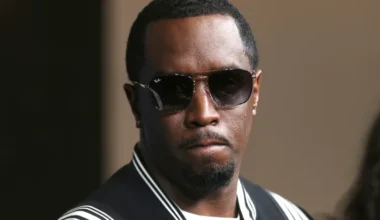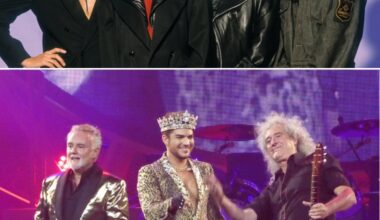If Freddie Mercury was in the right mood, he had a knack for both startling you and stroking your ego—all in the same sentence. “I hope that when you better yourself in your profession, you enjoy yourself too,” he once told a journalist, delivering a sharp jab with the feline grace of someone utterly comfortable in their own skin.
Some might say Freddie earned every bit of that confidence. In the 1970s, Queen wasn’t exactly “cool.” Their flamboyant, theatrical style set them apart from rock contemporaries like Led Zeppelin and The Who, who themselves were sometimes dismissed as too commercial to be considered “real” rock. Queen, with their polished sound and unorthodox frontman, faced an uphill battle for respect and recognition. But Mercury never cared about playing by the rules or pandering to critics. For him, it was always about doing what they did best—pushing boundaries, putting on a show, and not worrying about what anyone thought.
Much of the controversy surrounding Queen came from media overexposure that seemed intent on tearing Mercury down at every opportunity. Critics often dismissed him as a pretentious figure, brash and full of sass, masking a lack of substance. They saw him as the antithesis of the rock frontman—a man who lacked composure and reveled in ruffling feathers for fun.
Yet, there were those who understood the deeper story: a man who faced prejudice from the very start, who led Queen from formation to global stardom, and who survived it all with his wit and self-assurance intact. Mercury wasn’t just confident—he knew what it took to be a true rock star and wasn’t afraid to call out those who got it right.
“Can you imagine doing the sort of songs that we’ve written, like ‘Rhapsody’ or ‘Somebody To Love’, in jeans with absolutely no presentation? You don’t seem to realise that the kind of public who come to see us love that kind of thing. They want a showbiz type of thing. In fact, they’re the ones who put you on the pedestal,” Mercury told NME in 1977.
He singled out two legends as prime examples of what fans crave. “Why do you think people like David Bowie and Elvis Presley have been so successful? Coz they’re what the people want. They want to see you rush off in the limousines. They get a buzz.”
To some, Mercury’s biting remarks seemed like bitterness rooted in hardship. But to others, these moments revealed the pride and unapologetic boldness at the heart of Queen’s movement. It was a call to stand tall, chest puffed out, in celebration of music that defied norms and dared to make you feel something profound.
Freddie Mercury didn’t just front a band—he epitomized a rock and roll spirit that embraced spectacle, passion, and unyielding authenticity. And in doing so, he showed the world that the greatest buzz of all comes from owning who you are, no matter what anyone else thinks.





